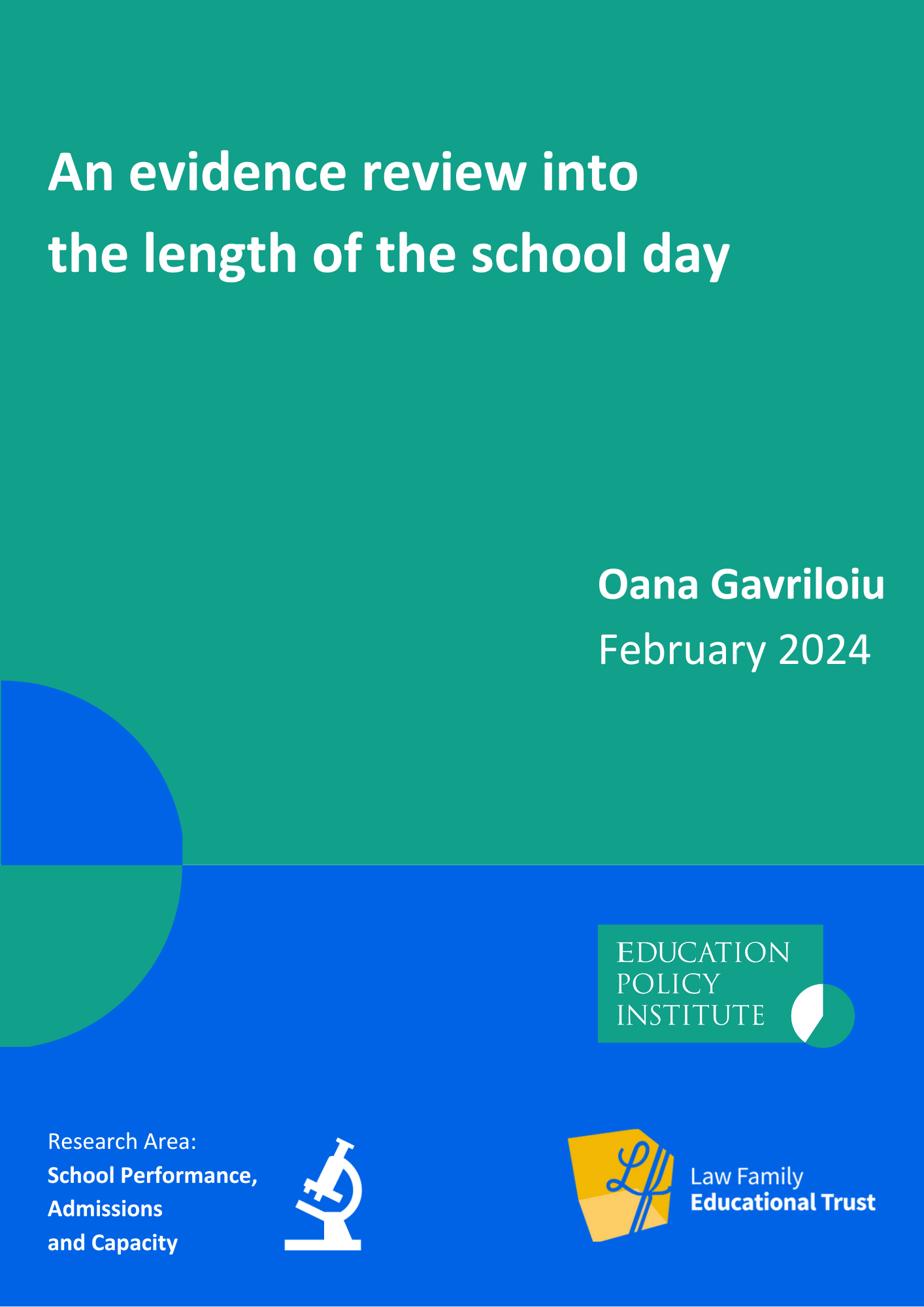In the 2022 white paper ‘Opportunity for all: strong schools with great teachers for your child’, the government set out an expectation that all state-funded mainstream schools should deliver a minimum length of school week of 32.5 hours, equivalent to 6.5 hours of time in school per day.
This expectation follows a 2021 DfE review of time in school, which suggested that extending time in schools could potentially benefit pupils’ outcomes contingent on how the time is spent. Potential benefits stated included more opportunities for learning, socialisation with peers, and enrichment.
This evidence review explores in further detail how much time pupils typically spend in school in England and what the potential impacts of increasing this amount of time could be, particularly with respect to attainment. We explore previous literature on:
▪ Theoretical benefits of an extended school day
▪ Cross-country comparisons
▪ Policy changes in other countries
▪ Heterogenous effects by socio-economic status, subject, and phase
▪ Effective delivery mechanisms
▪ Responses to the pandemic
In the next phase of this research project, our aim is to use the School Census to examine the potential
relationship between pupils’ academic outcomes, such as test scores, and the length of time they
spend in school.
You can read the report here.

This report has been kindly funded by the Law Family Educational Trust.
www.lawfamilyeducationaltrust.org

